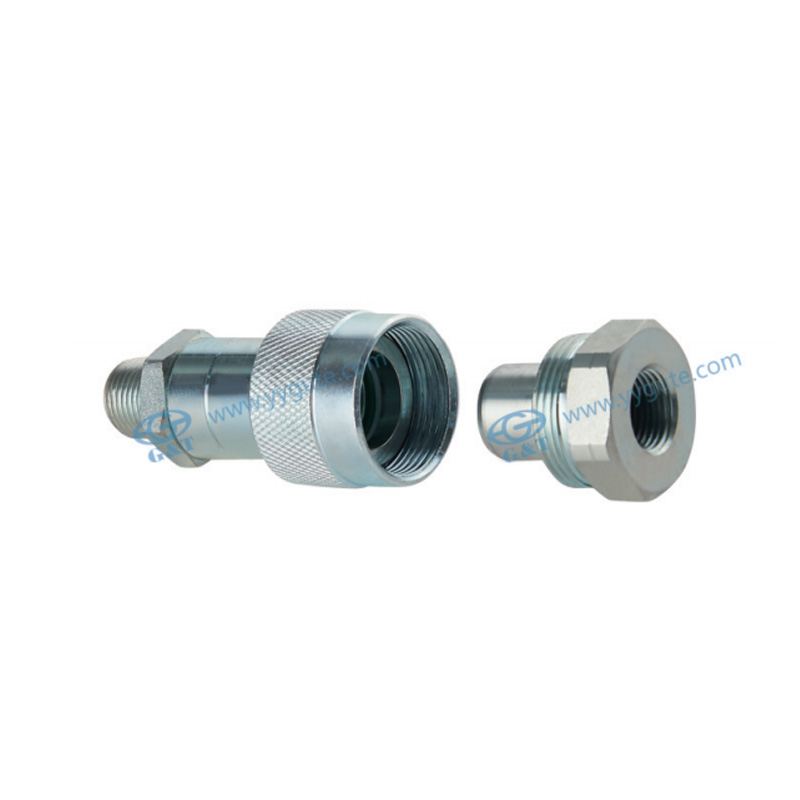How do Brass Quick Couplers address concerns related to corrosion and chemical resistance?
Brass Quick Couplers address concerns related to corrosion and chemical resistance through a combination of material properties and design features. Here are several ways in which Brass Quick Couplers mitigate these concerns:
Material Composition: Brass Quick Couplers leverage the unique properties of brass, an alloy composed primarily of copper and zinc, to achieve an optimal balance of strength, durability, and corrosion resistance. The copper component provides excellent thermal and electrical conductivity, crucial for various industrial applications. Meanwhile, the zinc content enhances the alloy's strength and contributes to its corrosion-resistant characteristics.
Corrosion Resistance: The corrosion resistance of brass is a result of its self-passivating nature. When exposed to atmospheric conditions, a thin oxide layer forms on the surface. This oxide layer acts as a natural barrier, preventing direct contact with corrosive substances. This inherent resistance significantly reduces the risk of corrosion, making Brass Quick Couplers ideal for applications where longevity and reliability are paramount.
Plating or Coating: To augment the inherent corrosion resistance of brass, manufacturers often employ additional protective measures such as plating or coating. Nickel or chrome plating, for instance, not only enhances the aesthetic appeal but also serves as a secondary defense against harsh environmental elements. This extra layer provides an added level of protection, particularly in environments where corrosive agents are prevalent.
Chemical Compatibility: Rigorous testing and analysis are conducted by manufacturers to ascertain the chemical compatibility of Brass Quick Couplers. Comprehensive compatibility charts and documentation are provided to users, detailing the coupler's suitability for various fluids and gases. This level of transparency empowers users to make informed decisions based on the specific chemical demands of their applications.
Sealing Mechanisms: The design of Brass Quick Couplers incorporates sophisticated sealing mechanisms to ensure not only a secure and leak-free connection but also to act as a robust defense against external elements. These mechanisms, often engineered with precision, contribute significantly to the overall corrosion resistance of the coupler by preventing the intrusion of corrosive substances into the internal components.
Regular Maintenance: A proactive and regular maintenance regimen is essential for sustaining the corrosion resistance of Brass Quick Couplers. Scheduled inspections involve thorough cleaning, lubrication of moving parts, and the removal of any accumulated debris. This preventive approach not only preserves the aesthetic appearance of the coupler but also ensures consistent and reliable performance over an extended service life.
Temperature and Pressure Considerations: Brass Quick Couplers are designed to operate within specific temperature and pressure ranges. Understanding and adhering to these parameters are critical aspects of maintaining corrosion resistance. The design considerations for temperature fluctuations and pressure variations further solidify the coupler's resilience, ensuring that it retains its corrosion-resistant properties even in challenging environmental conditions.
Environmental Exposure: Conducting a comprehensive assessment of environmental factors involves a detailed analysis of the coupler's surroundings. Factors such as moisture levels, humidity, UV radiation, and exposure to harsh chemicals are carefully considered. Implementing targeted protective measures, such as weatherproof enclosures or specialized coatings, becomes imperative for mitigating the impact of external influences and preserving the coupler's corrosion resistance over an extended operational life.
KZE-B thread locked type hydraulic quick coupling












Contact Us